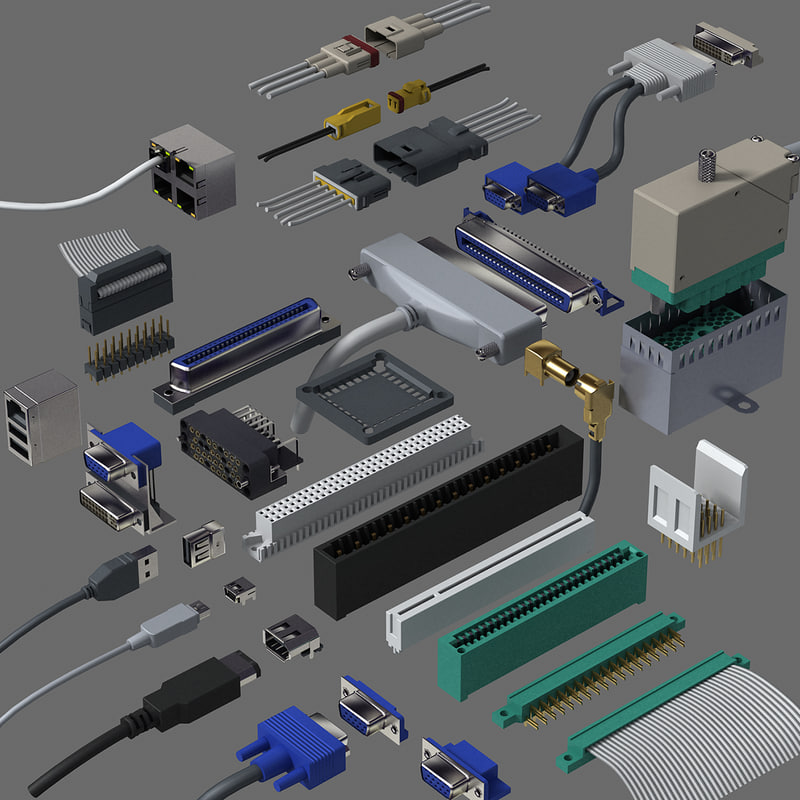the modern technological landscape, computers have become indispensable devices in not only individual and professional environments. Nonetheless, the swift rate of advancement regularly leaves a trail of surplus computer parts that are left unused, creating a wonderful chance for upcycling enthusiasts and smart shoppers. As businesses and consumers upgrade their infrastructure, the pieces of older technology can be repurposed, revamped, and given fresh purpose, contributing not just to environmental responsibility but also to budget-friendly solutions for those looking to build or enhance their computing systems.
Purchasing surplus computer parts can be a satisfying venture, provided you are knowledgeable about what to look for and how to explore the market. Whether you're a video game enthusiast on a limited budget or a DIY tech hobbyist, understanding the intricacies of surplus components can open doors top-notch devices at a reduced of the cost. This guide intends to simplify the art of buying surplus computer parts, including key tips, best practices, and considerations before making a transaction. Join us as we delve into the potential of repurposing with surplus computer components and empower your digital skills.
Guide to Buying Extra Hardware
When it comes to purchasing surplus PC components, the first action is to locate reputable sources. Search for reputable stores, web platforms with high ratings, and specialized mills. It's vital to check reviews and verify the refund policies to guarantee your investment is secure. Many providers will also supply detailed details and specifications of their components, which can help you gauge their state and suitability for your necessities.
Subsequently, get to know yourself with the varieties of parts you desire. Do you require a circuit board, processor, or RAM? Grasping your exact criteria can spare you time and effort and frustration during the acquisition process. Take note of compatibility concerns, such as socket specifications and RAM formats, which can affect whether a piece will work with your current system. Having a general idea of price trends can also aid you in recognizing a steal versus an inflated item.

Lastly, inspect the condition of surplus parts before making a transaction. Search for visible flaws, signs of use, and any indicators of problems. If possible, request performance data or assurances, as these can give further assurance of operational quality and trustworthiness. As you gain experience purchasing additional hardware, you'll develop a keen eye for quality and be more equipped to make informed decisions on your upcoming acquisitions.
Evaluating Condition and Value of Extra Components
When evaluating surplus computer components, the initial phase is to assess their physical condition. Look for any marks of usage, such as blemishes, rust, or staining. Components that appear well-maintained and tidy often indicate better care over their duration. Pay particular focus to connectors and ports; any defects or bent contacts can compromise connectivity and performance. Additionally, look for original packaging and documentation, as these can be signals of whether the component has been properly maintained.
Next, it's essential to verify the details against your needs. Surplus parts may present a range of performance levels, and knowing exactly what you require will help you avoid the challenges of conflict. For instance, when choosing a used mainboard, ensure that it supports your desired CPU, memory type, and expansion options. Researching compatibility before making a selection can save you significant time and effort in the long run.
Lastly, consider the source from which you are purchasing the surplus components. Reliable suppliers will often provide warranty options or promises that can add substantial value to your purchase. Customer reviews and scores should also be considered to gauge the reputation of the vendor. Prioritizing trustworthy sources not only enhances your chances of finding high-quality components but also helps ensure that you are not inadvertently acquiring counterfeit products.
Enhancing Your Shopping:
Tips for Success
While venturing into the realm of excess computer parts, being informed can make all the difference. check that by researching credible sources and retailers to make sure you are dealing with quality products. Seeking reviews or ratings can assist you assess the reliability of a supplier. Additionally, familiarize yourself with price ranges for items so you can recognize a bargain when you find one. This initial groundwork is essential for successful shopping.
A further key recommendation is to rigorously assess the state of the components you plan to purchase. Be sure to ask for specifics about the part's history and usage, and whenever feasible, check the part ahead of finalizing the transaction. For important components like motherboards, CPUs, and GPUs, a physical inspection can expose potential issues that may not be visible in digital advertisements, allowing you to steer clear of costly errors.
In conclusion, reflect on the future implications of your purchases. Choose for components that provide compatibility with a variety of systems, especially if you expect to upgrade in the coming times. Knowing the longevity and capabilities of extra components will help in making financially sound choices. Stay open to bargaining and hold calm as you hunt for the best deals; your perseverance will eventually improve your upcycling success.
